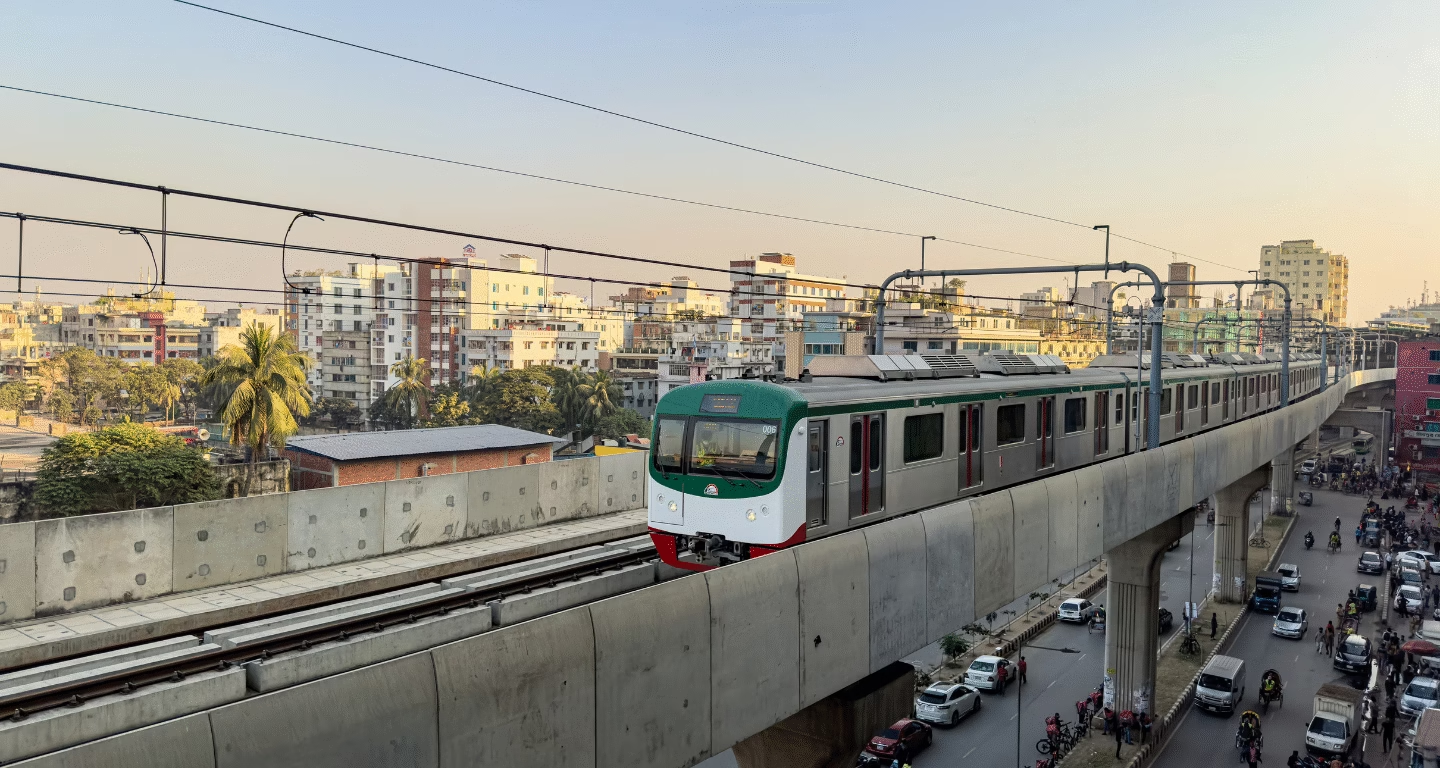The tragic death of Abul Kalam Azad, 36, who was struck by a falling bearing pad from the Dhaka Metro Rail near Farmgate, has sent shockwaves across the city.
What may appear at first glance to be a freak accident is in fact a reflection of a deeper issue in the country’s infrastructure: the neglect of basic safety standards.
This is not the first time a bearing pad has fallen from the metro rail. On September 18, 2024, a similar incident occurred at the same location, forcing an 11-hour suspension of services.
That no one died then was sheer luck. The fatal accident on Sunday underscores the consequences of ignoring early warning signs.
Shifting pads threaten structural safety
Bearing pads are essential components of metro rail systems. Positioned between viaducts and supporting columns, they absorb vibrations, support heavy loads and allow structural flexibility, especially during seismic events. Their role becomes even more critical at curved track sections, where lateral and downward forces converge. If bearing pads fail, load distribution is disrupted, threatening the stability of viaduct joints and supporting pillars and endangering both passengers and pedestrians.
Technical specialists elaborated on the function of the pads, warning that when a pad loses its functionality, it can compromise the entire structure.
Technical flaws and design risks behind repeated failures
Experts explained that tangential forces at curves can cause bearing pads to shift. They also noted that the pads on Dhaka’s metro are not properly anchored, making them prone to detachment.
Experts have pointed to technical and design factors that may have contributed to these repeated failures. Both incidents occurred at a curve in the track, a section known to exert additional pressure on infrastructure.
Stronger installation protocols, especially at curved track sections, along with thorough testing before installation and regular maintenance to prevent future failures, are needed.
Fixing the system before more lives are lost
The recurring accidents are also symptomatic of a larger, systemic problem. Weak oversight, contractors cutting corners and officials deflecting responsibility have long been part of the country’s infrastructure landscape.
Collapsing buildings, unmarked construction zones, falling cranes and faulty bridges are becoming too common. The human cost is high and ordinary citizens simply go about their daily lives and bear the consequences.
While acknowledging the tragedy, it is critical to focus on solutions. Experts recommend immediate and long-term measures to prevent further accidents. Securing bearing pads with stronger, metal-reinforced or pressure-resistant materials, especially at curved track sections, is essential.
Advanced monitoring systems can detect abnormal movements before they become dangerous. Mandatory safety certifications for all contractors, comprehensive maintenance schedules and insurance coverage for public infrastructure can ensure accountability.
Importantly, authorities must enforce these measures consistently rather than treating them as optional.
In response to the Farmgate incident, Road and Rail Adviser Fouzul Kabir Khan announced the formation of a five-member investigation committee led by Bridge Division Secretary Mohammad Abdur Rouf on Monday.
The committee is expected to submit its findings within two weeks. Experts hope the investigation will not only determine the immediate cause of the accident but also recommend systemic changes that can set a benchmark for infrastructure safety across the country.
A writ petition has been filed on Monday with the High Court seeking a committee to check if bearing pads in the metro rail and all flyovers meet quality standards.
Progress without risk
Bangladesh’s development ambitions- bridges, metro systems and skyscrapers cannot succeed without safety, transparency and accountability. Citizens expect progress but not at the cost of human lives.
‘A life lost, A warning ignored’
The death of Abul Kalam Azad is a painful reminder that development and safety must go hand in hand. By addressing technical flaws, improving oversight and committing to rigorous safety standards, the country can ensure that its infrastructure projects truly serve the people rather than putting them in harm’s way.
The tragedy at Farmgate should be a turning point. With proper action, Bangladesh can continue to grow and modernize without losing sight of the most important measure of progress: the safety of its citizens.

